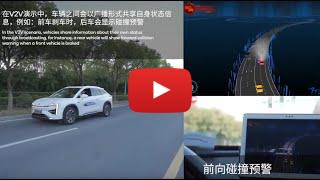The latest report from
V2X use cases will now include collective perception, remote sensor fusion, and cooperative mobility. This is happening as awareness grows surrounding the critical role of V2X to bring the reliability and robustness needed for level 4/5 vehicle automation.
"Though gaining traction, the V2X industry has not yet come up with a credible, convincing strategy for widespread installation, adoption, and use of V2X capabilities, which require near 100 per cent penetration levels," says Dominique Bonte, managing director and vice president at ABI Research. "Relying on consumers to pay for optional V2X functionality and thereby achieving widespread consumer adoption within reasonable timeframes is wishful thinking, especially when taking into account long vehicle replacement cycles. Moreover, efforts to impose a V2V mandate in the US remain surrounded by uncertainty amidst mounting discussions about radio spectrum."
"A more realistic scenario would be to equip vehicles designed for car sharing with V2X tech within smart city and mobility as a service contexts," continues Bonte. "This would avoid the pitfalls of B2C models and instead leverage fleet-based B2B approaches."
In the meantime, the V2X paradigm is becoming increasingly diversified and will extend to market adjacencies like vehicle-to-home (V2H) and vehicle-to-grid (V2G).
"V2X will evolve into a ubiquitous IoT-like, cross vertical connectivity and application paradigm, one that reaches far beyond the initial narrow scope of active vehicle safety and the DSRC/WAVE protocol," concludes Bonte.
ABI Research sees V2X technology gaining momentum in automotive
The latest report from ABI Research sees vehicle-to-everything (V2X) finally gaining momentum in the smart mobility industry. Illustrating this is a growing number of initiatives, trials, and product launches. Cellular V2X, aggressively promoted by the 5G Automotive Association (5GAA), now offers a potentially more flexible alternative to the legacy IEEE 802.11p. Vehicle-to-vehicle (V2V) and vehicle-to-infrastructure (V2I) collectively refer to V2X.
June 12, 2017
Read time: 2 mins









